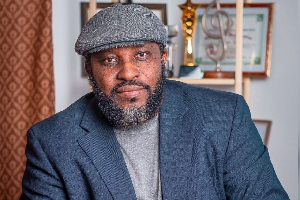Orangeburg, South Carolina
21st December, 2013
We are at the end of 2013 and about to enter 2014.
I see patients here in North America, virtually daily but I still remember many of my Ghanaian patients. How can I forget the day when, during rounds, a group of us Doctors were forced to play God by taking oxygen from one woman who had it and had improved slightly and giving it to another patient because she seemed worse. Fifteen minutes later, both patients were in distress and we debated the ethics of who should have the oxygen and restored it to the first patient. The second patient died within a few hours! This illustrates the fragility of life, the suddenness of death and how limited our resources are.
Therefore, instead of the regular habit of wishing you all a “HAPPY NEW YEAR”, I want to wish everyone, a “HEALTHY NEW YEAR”. It is obvious that government, health administrators, doctors, nurses, pharmacists, lab personnel and other actors can affect the health of the public a lot. Therefore, before getting to what we can do for ourselves, I urge government and all these actors, when dealing with the health of others, to remember the golden rule, “to do unto others as we would have them do unto us.” While our health professionals work very hard, sometimes, thinking of our patients like family might spur us on to give a little more of ourselves for the benefit of others.
Despite all these however, we as individuals are very important in our health. As one of my mentors used to say,” if you live across the street from the best hospital and get sick, if you do not get to that hospital or get carried there, you might die, within walking distance of exceptional professionals and facilities.” Our health, in large part, depends on public policy, our genes, our personal behaviours and our interactions with the healthcare system.
Of course, except in premarital genetic testing and gene mapping, we cannot change our genes after birth.
Public policy involves provision of water and sanitation, immunization and the availability of health facilities, medicines, ambulances, personnel, etc.
Aside from government, others, like the media, can impact our health, through education. I urge the media to use more of their medium for the dissemination of healthy, positive information instead of the divisive arguments we have endlessly.
Before getting to personal habits, let me suggest a few things about how to get the best out of the health system.
First, have regular contact with health professionals and perform tests that are recommended for your age. For instance, every adult should have their blood pressure checked at least once a year—all sexually active women must have a pap smear every one or two years to screen for reproductive cancers and women over fifty should have mammograms yearly to screen for breast cancer. Furthermore, all adults over forty should be screened for Diabetes while those over fifty should be screened for colon cancer regularly. Also, adults should have recommended immunizations--- for Hepatitis, Influenza, Meningitis and Pneumonia as necessary.
While pregnancy is not a disease, all pregnant women must have early and regular contact with health professionals and if possible, deliver where trained professionals are available.
Second, be a smart patient. Make your appointments on time, take your medicines as prescribed –carry them to appointments and ask questions about tests and treatments recommended by your Doctors.
Third, break free of superstitions--- many diseases have rational scientific explanations. Do not waste time with unqualified people, including priests when you have something that may be treatable. This, of course, does not mean that prayers do not work. They do, when used in the proper context.
Here are respectful suggestions about habits that should improve your health:
First, exercise regularly.
Second, eat a healthy, low-fat, low-salt diet. In addition to these, eat a healthy breakfast whenever possible and do not eat late at night. Be sure that food is prepared in sanitary conditions and if travelling, eat only hot food—germs do not survive heat well.
Third, do not use illegal drugs or drink alcohol to excess. It destroys lives and spurs crime.
Fourth, do not smoke. It is, perhaps, the biggest killer on earth.
Fifth, do not have unprotected sex with multiple partners. It leads to Sexually transmitted diseases, including HIV, panic abortions and to children you may not be ready for—by heart.
Sixth, if you can, get and stay married. According to the experts, married people live longer!!
While these habits are important, our approach to life, outside of healthcare, affects our health.
In the New Year, let us all strive to be better and happier people.
Be a better person to your friends and loved ones. We cannot be good people to strangers when we are mean to those who are close to us.
Next, be interested in something bigger than your narrow self-interest. This can mean involvement in your church, a society, a sports club or politics. Whatever arena you choose to get involved in, be respectful of others. Know that others can disagree with you and still be good honourable people. And do not be a “Wikileak person”. Recognize other people’s strength and skills. In times of dispute, think of Isaiah 1:18 “Come let us reason together”.
Finally, have a spirit and attitude of gratitude for the blessings of your life. As Psalm 127:1 makes clear, “Except the Lord himself buildeth, they labour in vain that try to build.” Wake up every day with a song in your heart, a spring in your step and a desire to make the world a better place, one person or deed at a time.
Happiness, which comes from within, improves health tremendously.
May God grant our country Ghana and each one of us, a peaceful and healthy 2014.
Afehyia Pa!!
Arthur Kobina Kennedy
Opinions of Monday, 23 December 2013
Columnist: Kennedy, Arthur Kobina
Merry x’mas and a healthy 2014
Entertainment













